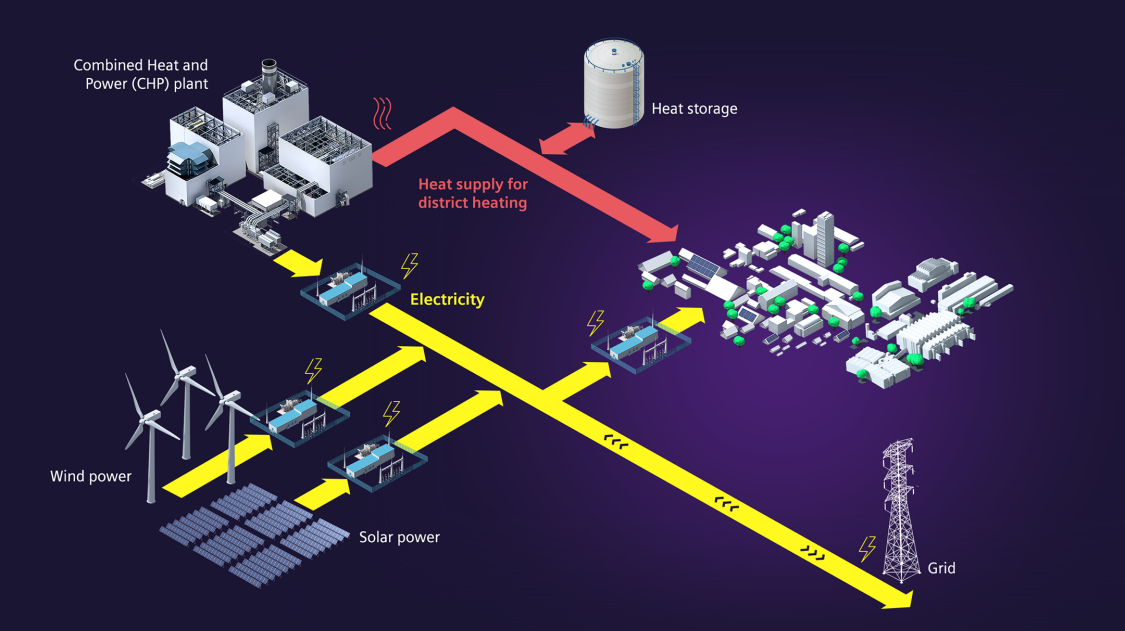
Battery storage plays a critical role in enhancing the efficiency and effectiveness of Combined Heat and Power (CHP) systems integrated with microgrids. Here's how batteries contribute to this synergy:
-
Load Balancing and Demand Response: Battery storage can help manage the energy produced by CHP systems. During periods of low energy demand, excess electricity generated by the CHP can be stored in batteries. Conversely, during peak demand, stored energy can be released, ensuring a consistent and balanced power supply.
-
Enhanced Efficiency of CHP Systems: Batteries can enable CHP systems to operate at optimal conditions continuously. By storing excess power when demand is low, CHP systems can run at a steady, efficient rate rather than ramping up or down in response to fluctuating demand, which can be less efficient.
-
Integrating Renewable Energy: In a microgrid that includes renewable sources like solar or wind, battery storage can compensate for the intermittent nature of these sources. It stores excess energy when production is high (like during sunny or windy periods) and releases it when production is low, ensuring a stable energy supply.
-
Reduced Dependence on Grid: With battery storage, microgrids with CHP systems can operate more independently from the main grid. This is particularly useful during grid outages or periods of high demand, where microgrids can rely on stored energy to meet their power needs.
-
Cost Savings and Economic Benefits: By using battery storage to optimize CHP system operation and balance the microgrid's energy supply, energy costs can be reduced. Batteries can store energy when rates are low (off-peak) and release it when rates are high (peak), leading to significant cost savings.
-
Supporting Grid Services and Stability: Batteries in a CHP-integrated microgrid can provide grid services such as frequency regulation and voltage support. This not only contributes to the stability of the broader grid but can also be a potential source of revenue if services are provided to grid operators.
-
Emergency Backup: In emergencies or blackouts, battery storage provides a crucial backup, ensuring continuous power supply, which is especially important for critical infrastructure relying on microgrids.
In summary, battery storage adds flexibility, efficiency, and resilience to microgrids with CHP systems, making them more effective in meeting energy demands, integrating renewable sources, and providing reliable power. This integration is a step forward in creating sustainable, resilient, and cost-effective energy systems.
